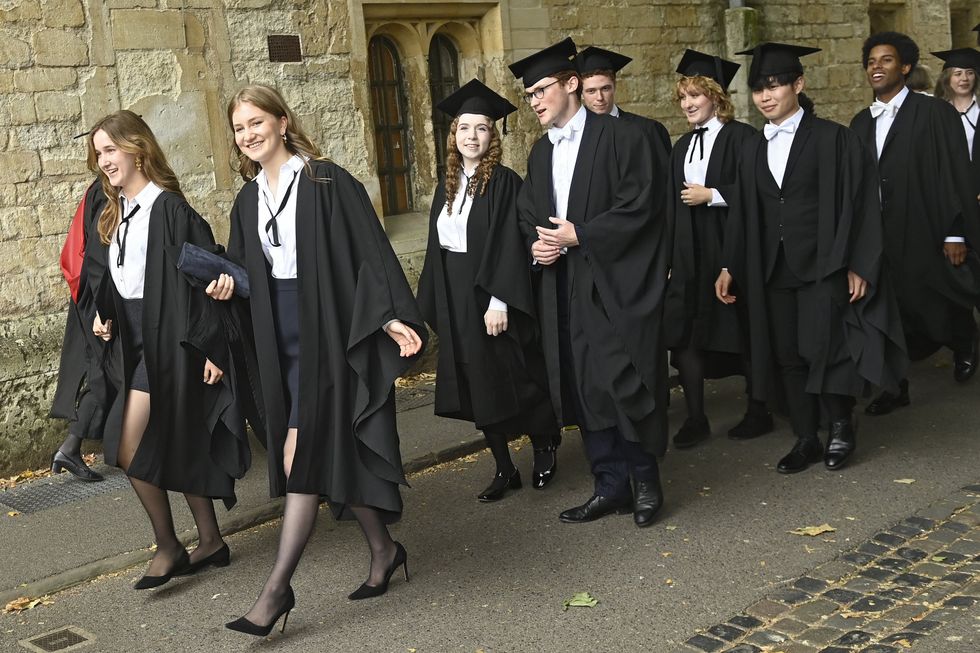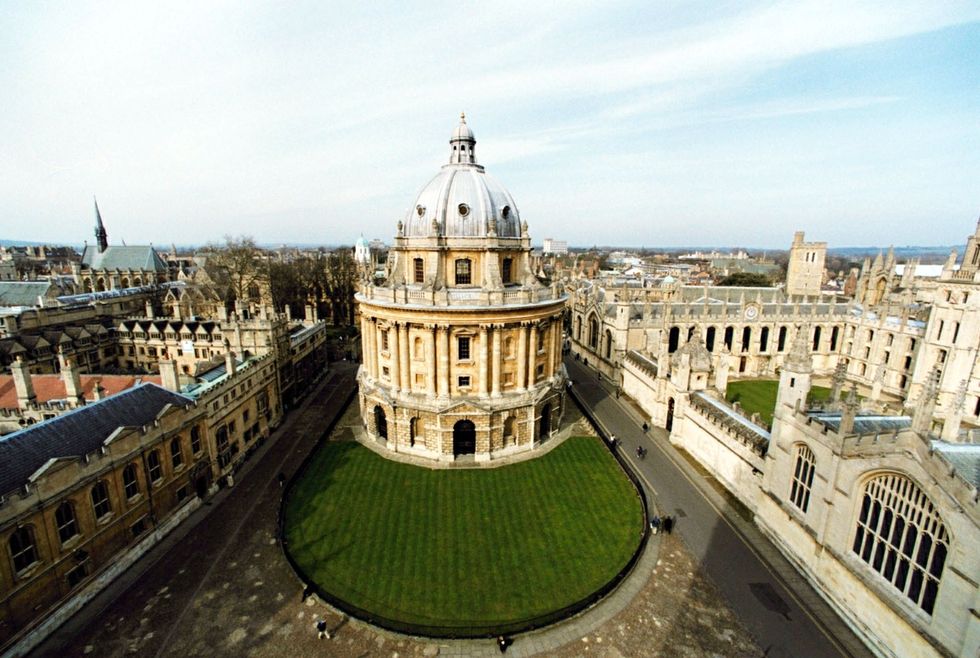Oxford University has been accused of “undermining its integrity” by accepting “disadvantaged” students to meets its diversity target.
The institution has received significant criticism from academics over its Opportunity Oxford scheme, which reserves one in ten undergraduate places for students from disadvantaged backgrounds.
The programme, which aims to increase access for students from working-class areas, has sparked debate about whether it undermines the university’s academic excellence.
Critics claim that some students admitted through the scheme lack basic academic skills, while supporters defend it as promoting equal opportunities.

Oxford University has been accused of “undermining its integrity” by accepting “disadvantaged” students to meets its diversity target (stock image)
GETTY
The scheme currently allocates 220 places annually out of Oxford’s total 3,300 undergraduate positions, which is set to expand to 280 places by 2028.
The places are specifically reserved for applicants from “disadvantaged” postcodes or those classified as being from “stretched society” who do not pass the normal admissions process.
Academics involved in admissions have strongly disputed the university’s claim that students are admitted “on the same rigorous basis as all other students”.
“I have known students admitted under this scheme who could not write essays in grammatical English, something previously unknown in my experience among Oxford undergraduates,” one don told The Times.
An associate professor warned that the system “exists to undercut standards and take control away from academics”, adding that this “undermines the integrity of the university as a centre of academic excellence”.
Priority is also given to applicants who have been in care for at least three months or are eligible for free school meals, while candidates must typically be educated at state schools from ages 11 to 18.
LATEST DEVELOPMENTS:
Private school students can be nominated only in “rare occasions”, with such cases likely to face additional scrutiny from the programme’s lead, as the guidance claims that private education is seen as largely mitigating any socio-economic disadvantage.
The university’s own guidance has suggested that the scheme displaces more academically capable students, saying: “The university is not increasing its undergraduate intake so it would be expected that OppOx places would displace other candidates.”
One anonymous admissions tutor at an Oxford college said: “The scheme admits students whose academic potential is judged inadequate for admission under normal standards. These students displace other students with greater academic potential who would otherwise have been admitted.”
A university lecturer noted this comes on top of existing “access-related accommodations” in the standard admissions process.
Oxford University has defended the scheme, emphasising that all students must meet rigorous standards, with a spokeswoman saying: “All Opportunity Oxford students must meet the same conditional offers for their course as other offer-holders.”

The university has maintained that it “seeks students with the highest academic potential” and that all offer-holders go through “one of the world’s most competitive application processes”
PA
She explained that the programme helps prepare “talented UK offer-holders from under-represented backgrounds for successful student careers at Oxford”.
The university has maintained that it “seeks students with the highest academic potential” and that all offer-holders go through “one of the world’s most competitive application processes”.
Chris McGovern, chairman of Campaign for Real Education, warned that “well-intentioned but misguided policymakers are placing diversity, equality and inclusion above academic ability because intelligence is not evenly and fairly distributed.”
McGovern described Opportunity Oxford as “hiding behind the concept of affirmative action to introduce a form of educational apartheid to its admissions system.”
He cautioned that as other leading universities follow suit, it will “dumb down educational standards and as a consequence dumb down the economy, the professions and public service.”